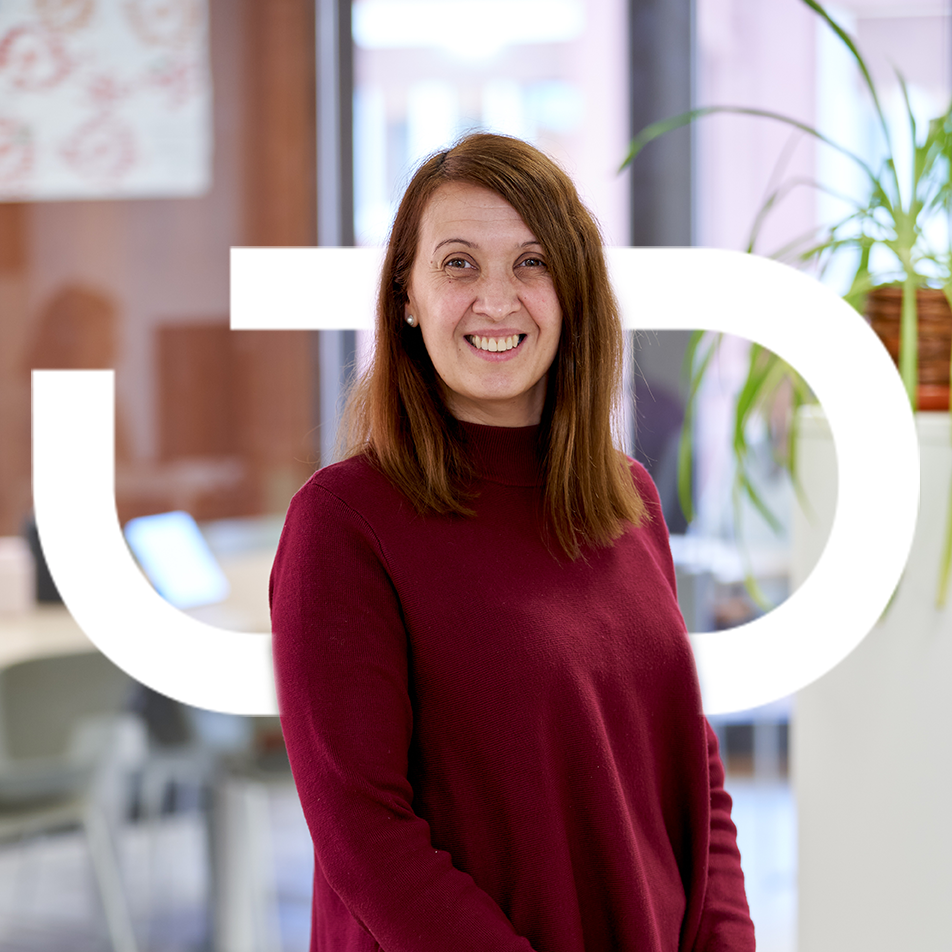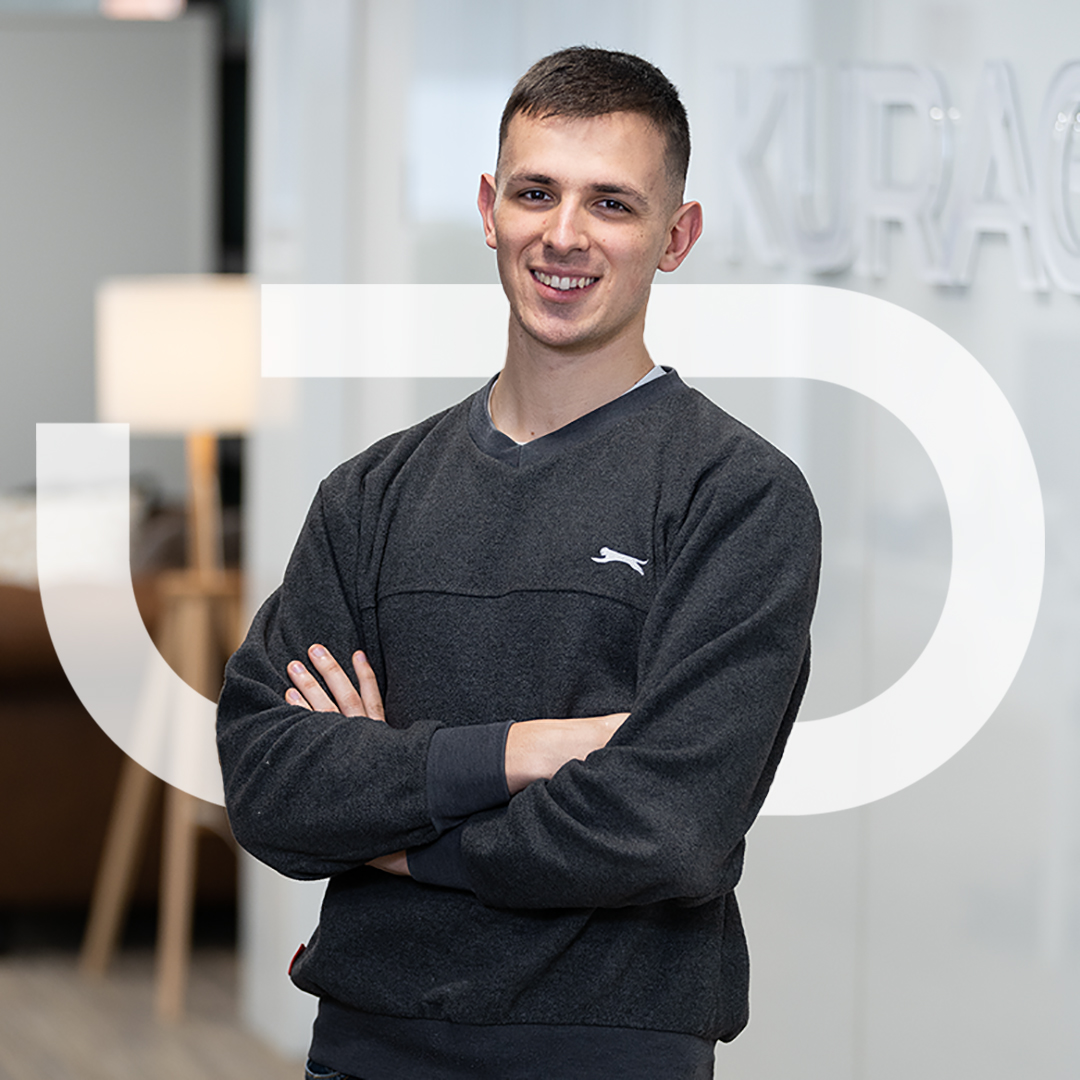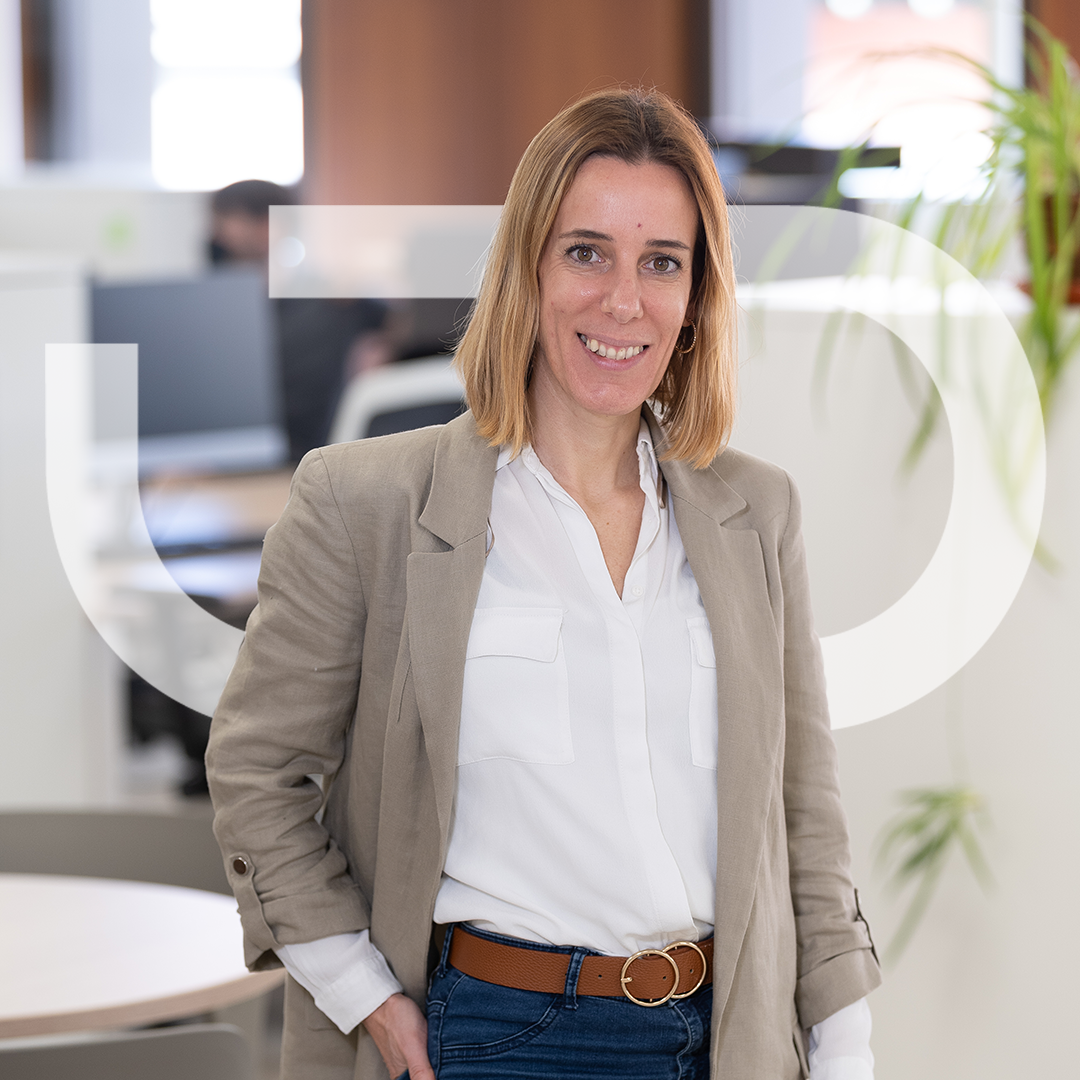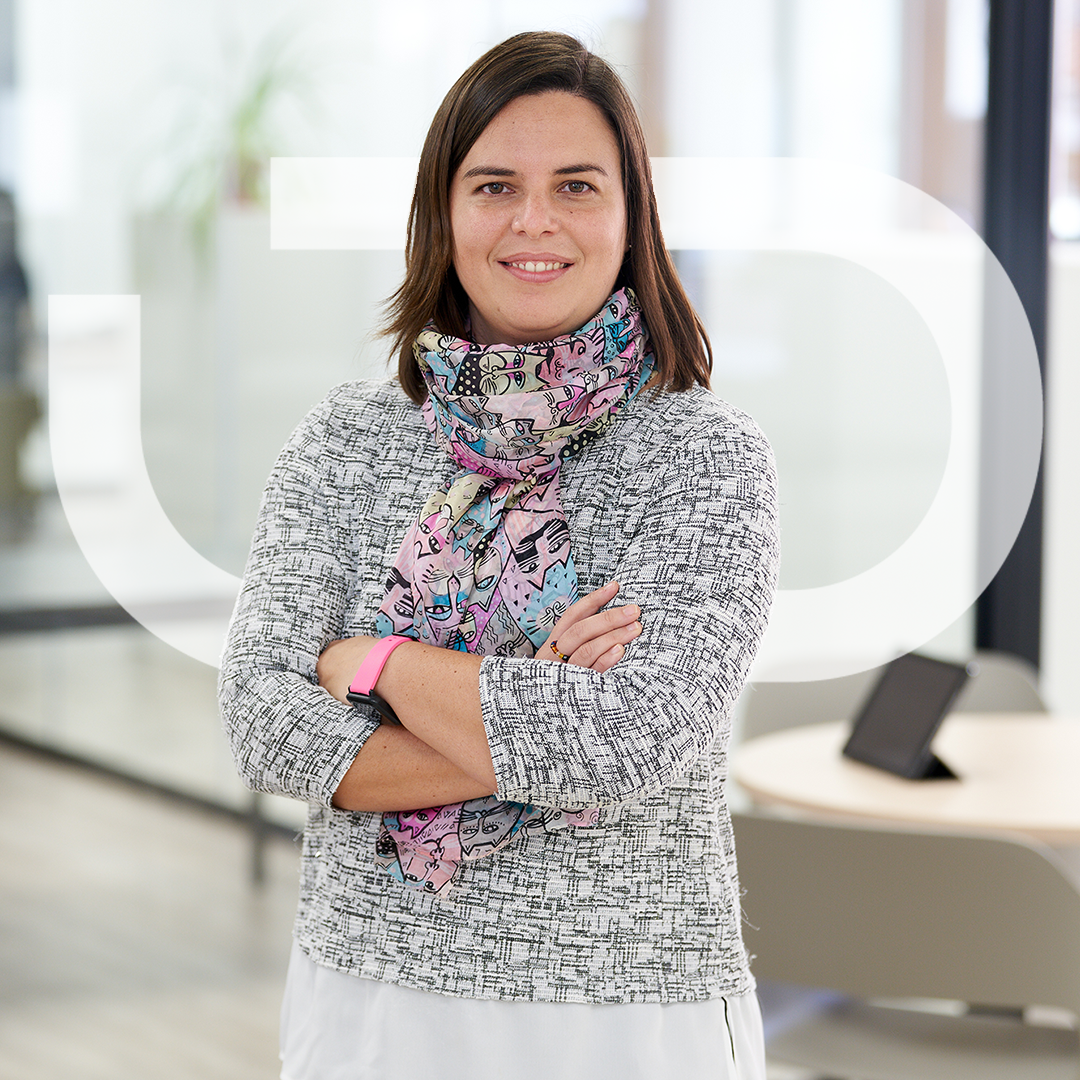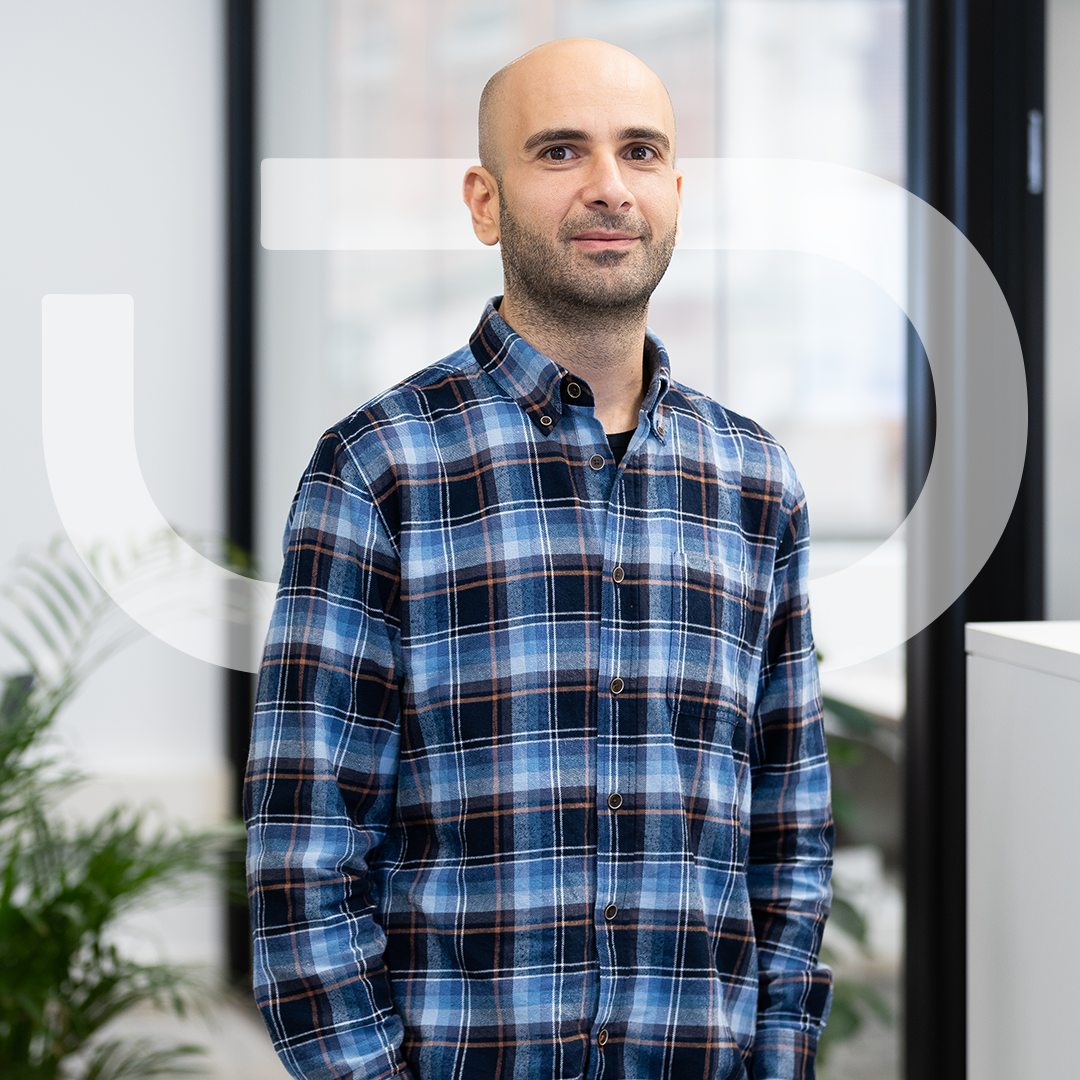Santiago Montaner – I can see myself here for the long run
Santi is a Software Engineer and a member of the Robot Manager team, the system used for programming a robotic cell for folding sheet metal. Broadly speaking, the mission of the crew that Santi works in is to streamline the programming and to fine-tune robotic cells.
How did this mathematician end up working on the design and development of algorithms for robot programming systems for folding sheet metal? Well, he did his degree in Zaragoza and then went on to take his master’s degree, which involved a stay at the University of the Basque Country. His interest in the research lines conducted at this university prompted him to remain here and study for his Ph.D.
After his sojourn in Bilbao, he moved to France to continue his research within a setting more closely related to applied mathematics. After several months in France, he had the opportunity to return to Bilbao, although this time outside the world of academia, where he began working in an ICT department closely linked to data analysis for the machine-tool sector.
“We often tend to do things intuitively, but when you are developing software or writing a line of code it has to be done properly. Adopting an analytical approach is a great help”.
This background has helped him to acquire the core knowledge needed for his work and develop an analytical mindset that he considers to be crucial for his current job, as “we often tend to do things intuitively, but when you are developing software or writing a line of code it has to be done properly. Adopting an analytical approach is a great help”.
Although he had been working in the field of machine tools, Santiago’s main challenge when he joined Kurago involved becoming a member of the team that develops software for robotics. A brief that he found immensely stimulating.
One of the things I enjoy the most about being part of Kurago is the daily technical challenges.
Furthermore, he had no experience working in teams that applied agile methods. It is a new approach that he adapted to very quickly. He now considers it a highly useful way of working because it means that the feedback on a specific development involves short iterations, making it easier to advance in previously unexplored environments.
Given his track record, it is clear that Santiago is not fazed by challenges. He admits that one of the things he likes best about working at Kurago involves the technical challenges he faces in his everyday work. “It’s what I most enjoy. I am resolving technical issues in a pleasant atmosphere. These two aspects complement each other because if the atmosphere weren’t so good, it wouldn’t be conducive to tackling challenges. This is one of the reasons I can see myself being here for the long run. There’s a lot of work to be done in this project, many challenges to be resolved, not only related to robotics but also in numerous other areas in the digital factory ecosystem.
More about me
- Experience: I have devoted a large part of my adult life to research; specifically, four years on my Ph.D., and then I moved into the professional world by focusing my career on a more technical ambit by working in an ICT department.
- Education: Degree in Mathematics from Zaragoza University, Ph.D. from the University of the Basque Country.
- Motivation: I enjoy research and, above all, continuously having to face challenges.
My likes…
- A book: Rationality, by Steven Pinker.
- A series: The Last Kingdom.
- Favorite time of day: I love going for a walk with my daughter just after I have finished work.
- A hobby: walking in the hills with my wife, getting out of the city for a while. I’m also very fond of climbing, although it’s a hobby that I haven’t been practicing much in recent years.

